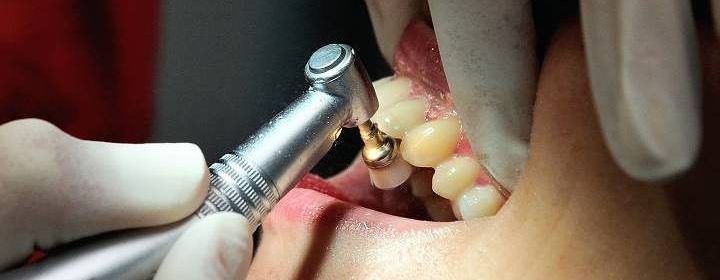Removing the barriers: How to find and provide dental care for children with autism

A little over a decade ago, Dawn Morrison was looking for a dentist for her young son and quickly realized it wasn’t an easy feat.
Max, who is now 17, has autism, which caused him to experience sensitivity around his mouth as well as high anxiety.
“He might just be clamping his mouth shut and not letting anyone to even go look around. His anxiety was that high,” she said.
“It really requires a lot of understanding and patience on the part of the dentist and a knowledge of autism and autistic kids.”
Morrison says she initially had to take her son to the IWK Health Centre in Halifax for all his dental appointments and that he would have to be sedated.
In general, he simply wouldn’t see a dentist regularly.
Unique dental care needs
It’s a scenario with which Dr. Tracy Doyle is all too familiar.
To mark World Autism Awareness Day, the IWK Health Centre pediatric dentist and Dalhousie University instructor is offering some tips for parents and dentists on how provide effective oral health treatment for young patients with autism.
She says children with autism often avoid visiting the dentist and can miss out on a lot of preventative treatments. Oftentimes, she says, dentists may also be ill-prepared to work with patients with special needs.
“We see a lot of families who because of negative experiences with health care — because they’re really scared their child is going to react negatively — avoid coming to the dentist,” she said.
She says children with autism often have unique concerns with their teeth. If they have sensory concerns, they may not like the feel of toothbrush bristles or the taste of toothpaste.
The children also tend to be very picky eaters.
“They tend to choose foods and drinks that aren’t very good for your teeth,” Doyle said. “They have very limited food intake so sometimes that’s all their parents can get them to eat.”
She adds that the experience of seeing a dentist can be “out of the ordinary” for most children and especially so for children with autism. From the bright lights to the loud noises and unfamiliar tools, it can be very overwhelming.
Tips for dentists and parents
That’s why she teaches her dental students to send out pre-appointment questionnaires and then tailor the experience for each child.
“If we know in advance what are some kids’ triggers then we can, maybe, [not] keep them in the busy waiting room, keep them in a dimly lit auditory [space] to keep things calm and less stimulating,” she said.
She also offers non-verbal patients flash cards with comments such as “stop” or “I need a drink of water” or “I’m nervous” so that young patients can communicate with their dentist.
She also advises parents and dentists to stick to a routine.
“We really advocate keeping things the same. For instance, if a child is coming to your office, you try to keep the same time of day, same dentist, same dental assistant if you can, same colour toothbrush, same toothpaste,” Doyle said.
The ultimate goal is to create a safe and welcoming space for patients and their parents so that they feel comfortable coming early on in the child’s life. Preventative treatment, she says, is easier than treating problems.
“Our goal is for all children to see a dentist by age one, and this is particularly important for children with special health-care needs who have additional barriers to maintaining good oral health,” she said.
Teaching the next generation of dentists
Doyle, who is also the director of pediatric dentistry undergraduate curriculum at Dalhousie University, has worked extensively with children with autism.
She was the clinical director of the Special Smiles program at the national Special Olympics in Antigonish, N.S., last year. That program offered free dental screening and tips for Special Olympics athletes.
She is also the faculty adviser for the annual Sharing Smiles Day at the university, which takes place this Saturday, April 6.
The event brings together dentistry students, faculty and participants with intellectual and physical challenges together in a fun setting so they can get comfortable with each other and learn more about oral health care.
“Hopefully having students interact with people with intellectual disabilities early in their career will foster positive relationships,” she said.
That’s why she incorporates special care dentistry into her curriculum for students and includes it in her continuing education classes.
Success story for Max
Meanwhile, Morrison’s son has found success after her family’s search for a dentist.
For the past decade, he’s been visiting a Halifax dentist who bonded with Max by letting him test out all the dental tools.
“Our dentist let Max handle all of the tools, and it really demystified the process for Max,” Morrison said.
“It took his anxiety down, and that was a huge step. That was huge for our family because I was really worried about his oral health.”
Sign up for our Health IQ newsletter
© 2019 Global News, a division of Corus Entertainment Inc.
Source: Read Full Article
